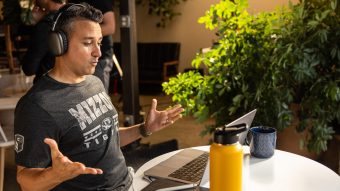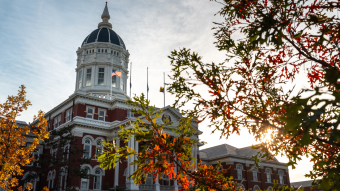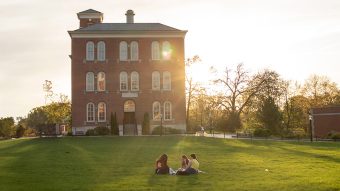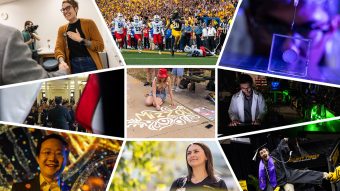April 30, 2025
Contact: Sara Diedrich, diedrichs@missouri.edu
Photos by Sam Cox
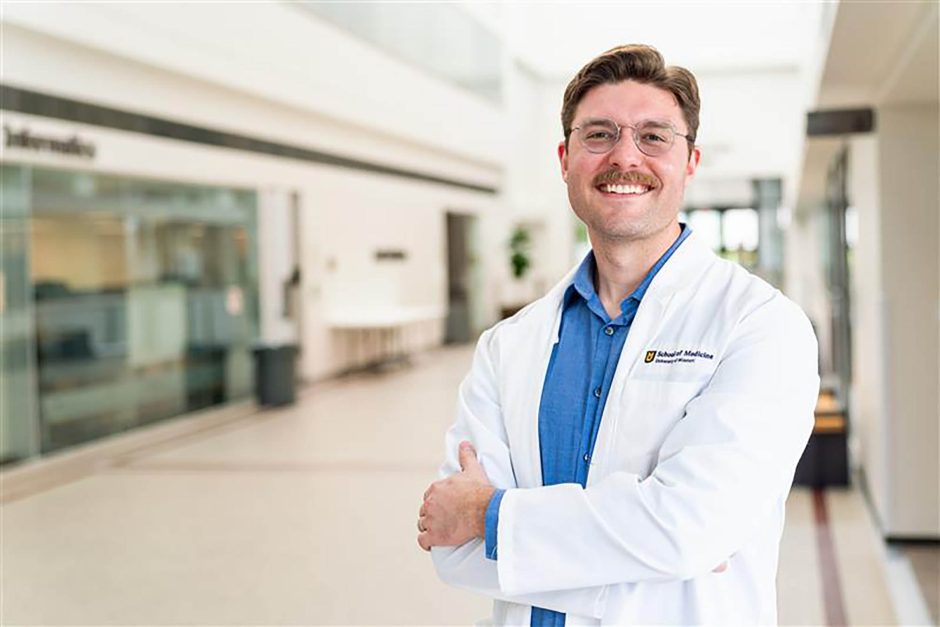
Marcus Mallen can’t wait to go home.
To him, Savannah, Missouri, isn’t just a small town where he grew up, it’s where he’s always belonged. But this time, the University of Missouri student hopes to return with more than just a suitcase. He plans to go back with a stethoscope, a medical license and a deep commitment to care for the community that raised him.
Thanks to the Rural Scholars Program at Mizzou’s School of Medicine — established to address the critical shortage of physicians in rural Missouri — Mallen is one step closer to his dream: becoming Savannah’s hometown family doctor.
“There’s a deep sense of personal satisfaction I get from caring for people — especially those from rural communities like the one I grew up in,” said Mallen, a soon-to-be medical resident in Fayette who spent his third year of medical school training at Bothwell Regional Health Center in Sedalia. “When I was in Sedalia, talking with patients often felt like chatting with my best friend’s mom — familiar, honest and real. We shared the same struggles. I saw my own community reflected in them.”
This year marks the 30th anniversary of the Rural Scholars Program, which provides medical students committed to rural practice with a variety of experiences — from specialized lectures and mentoring to immersive clinical experiences focused on rural health care. Students apply for the Rural Scholars Program during their first year of medical school. However, some students, like Mallen, can be accepted earlier through the Lester R. Bryant Scholars Pre-Admissions Program, a selective track for undergraduates who must meet certain academic standards, demonstrate professionalism and participate in required activities to secure their spot as a Rural Scholar.
Through his training, Mallen has come to recognize the significant health disparities in rural communities, where limited access to medical care leaves residents — who are often older and in poorer health — at a distinct disadvantage. He hopes to change that when he returns to his hometown with his wife and daughter.
“I want to bridge that gap — to make sure the people I know, love and care about have access to the kind of health care they deserve,” he said. “I’m grateful that I’ve had the opportunity to train in the way that I see myself practicing medicine — in a small practice in a small town. That has made a huge difference in empowering me to believe I can return to my hometown one day and be happy and fulfilled.”
Meeting the challenge head-on
The need for physicians in rural communities is more urgent than ever — and Mizzou is rising to meet the challenge. According to the American Medical Association, more than 65% of the nation’s rural areas face a shortage of primary care doctors. But programs such as Mizzou’s Rural Scholars are making a real difference and improving health outcomes for people in rural areas.
Each year, about 20% of the 128 students admitted to Mizzou’s medical school are selected for the Rural Scholars Program. Through immersive summer experiences, hands-on clinical rotations and elective opportunities in rural communities, students gain invaluable, real-world training throughout medical school. The impact is clear: Nearly 60% of participants go on to practice in rural communities, directly addressing the health care access gap.
"We believe the best way to prepare students for rural medicine is to immerse them in it," Whitney LeFevre, medical director for the Rural Scholars Program, said. "These experiences open their eyes to the relationships and deep sense of purpose that come with serving rural communities — and many of them never look back."
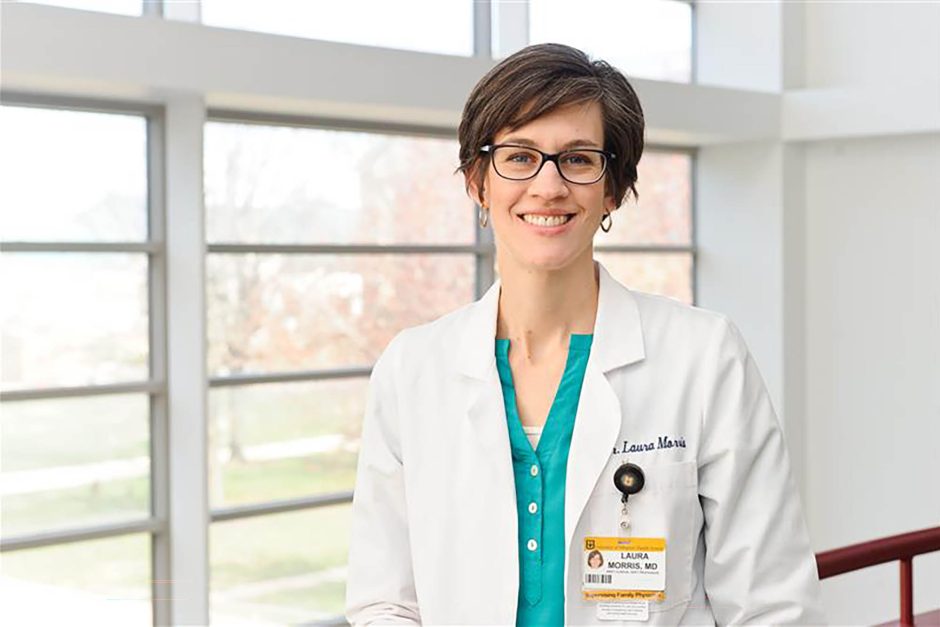
Supporting students to serve
Laura Morris, a family medicine physician at MU Health Care in Fulton and former medical director of the Rural Scholars Program, has dedicated her career to rural medicine and community-centered care. Raised in a small town, Morris joined Rural Scholars through the Bryant Scholars Pre-admissions Program, setting her on a path to serve the kinds of communities that shaped her.
“My one-on-one training in rural clinics was incredible,” she said. “It was vastly different from being in a large academic center. That intimate, comprehensive experience influenced my decision to pursue full-scope family medicine.”
Through early mentorship, rural clinical training and strong peer networks, the Rural Scholars Program is preparing students not just academically, but socially and professionally for rural practice, Morris said.
“If we don’t actively train and support students in rural areas, we won’t have physicians in rural areas,” she added. “Exposure, mentorship and hands-on experience matter. You can’t aspire to something you’ve never seen.”
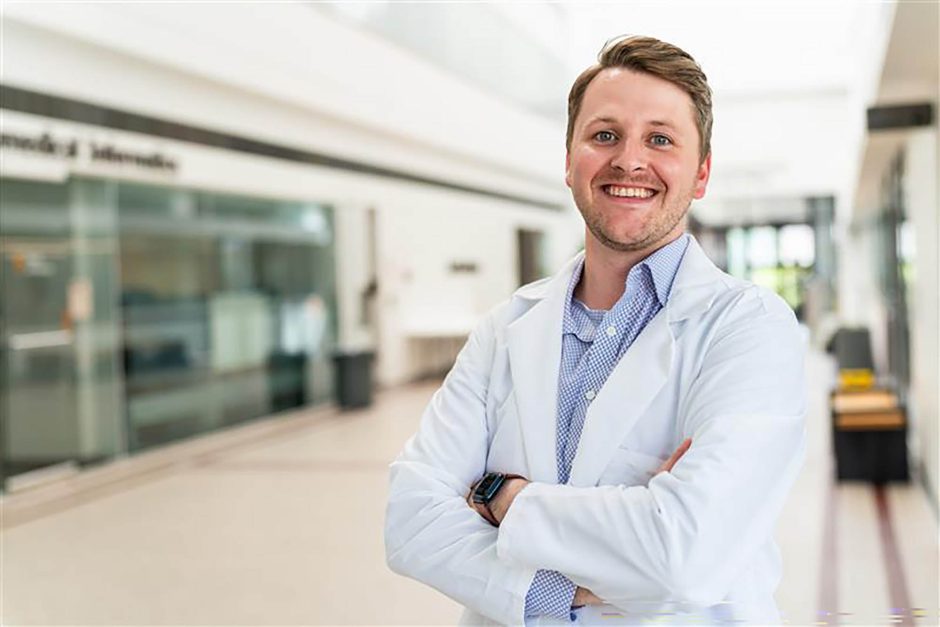
Serving community and family
Brian Blankenship, a married father of two now completing his neurology residency at MU Health Care, once imagined building his medical career on the East Coast. But his experiences in the Bryant and Rural Scholars programs reshaped that vision, deepening his conviction that his true calling lies in serving rural communities.
Raised in Reeds Spring, Missouri — a town just outside of Branson where neighbors look out for one another and the sense of community runs deep — Blankenship grew up steeped in the values of service and connection. As a teenager, he served on the staff of Missouri Boys State, an eight-day program that teaches high school students about leadership and the workings of government.
“Growing up in a rural community, public service was always important to me,” Blankenship said. “You witness firsthand how people come together to support one another.”
Following his residency, Blankenship will complete a one-year fellowship at MU Health Care before beginning his full-time practice as a neurologist in Branson.
“Throughout this whole experience, I kept coming back to what really matters to me: family, community and raising my kids in a place where they’re surrounded by love,” he said. “Being close to home reminded me of the value of seeing your grandparents regularly, of having deep roots. While I was going through medical school, my kids saw their grandparents. That perspective reshaped my path — I realized I might not want to chase every rung of the academic ladder. Instead, I wanted a life that allowed me to rotate back to Branson, to serve my community and to give my kids the kind of upbringing I cherished.”
